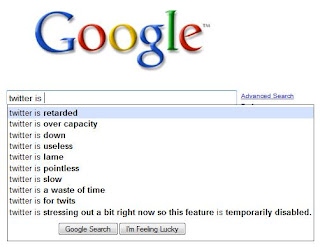Journalists have to another ethical question to answer...
Do we need a code of conduct for the Internet?

Possibly the best and worst invention at the same time. A journalistic playground, but this absolute freedom of speech turns everyday user into potential victims. There are no accuracy checks on the Internet. No credibility checks. Codes are bent to their extremes. What you report can be true or false – which doesn’t matter because there’s no accountability. And the most oblivious code that is crossed regularly on the cyber net is harm. Anything you want to say, under the right website, will be published.

In our defense the Internet is like a hybrid of television, radio and newspaper. When you report news, you want to be first and the most accurate. Even though speed always adds pressure the three ladders to do the work faster, leaving more them more room for error, it’s doesn’t come close to the speed and pressure the world wide web faces. If you hear something that you deem newsworthy, YOU BETTER REPORT IT. The Internet is not a matter of minutes, but a matter of seconds. And the web has the best insurance. If you information is false, you can keep reprinting until it’s correct. Fortunately this does the reporter no harm, but the victims of the story now has 4, 5, 6 stories printed about them and when something is printed on the Internet, it’s permanent.

Also you also have to think about it from the other side. Most of the time the Internet is very accurate. You can get up to the second news and you don’t have to watch for certain TV program or the next day for the new edition of the paper. Weather, game scores, court decisions are all at the touch of a button. For every one person publishing falsehoods on the Internet, there are hundreds reporting the truth.
But the World Wide Web does something’s that TV, radio and paper is incapable of doing. It turns everybody into a journalist. EVERYBODY. There are no filters, no Internet requirements and no serious cost to enter the field. Social networks like Twitter and facebook have turned everyday people into reporters. Half of the local news I receive is via status update and/or tweetpic.


The potential harm here is no different here then it would be higher up. Especially in my case: some people might question what we, as college students, consider newsworthy. In other words, GIRLS- STOP SENDING YOUR BFs NUDE PIX…facebook is usually the final destination after you guys break up.
So now what? This begs the question: Do we need a code of conduct for the Internet? How are we going to police this system? In my opinion it’s impossible. How can you try to discipline that many people? I say that want stop trying to apply similar rules we use for television, radio and newspaper and we try to encourage/enact a new set of codes for the web. Unfortunately, the codes will probably have to be less strict than the already lenient rules for the three other media. Maybe if we add punishments or penalties for certain actions, it will deter people from publishing everything they hear, see or just want to say for no reason. It will be a long shot, but hopefully the current standards will change for the better.

No comments:
Post a Comment